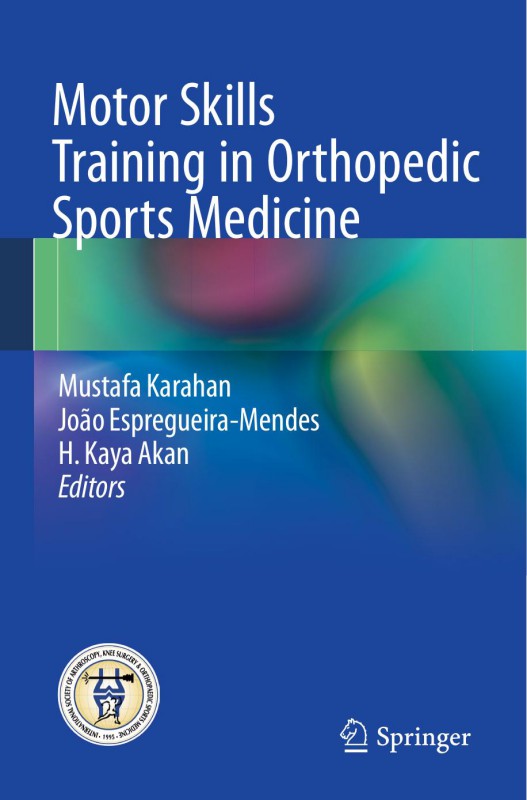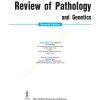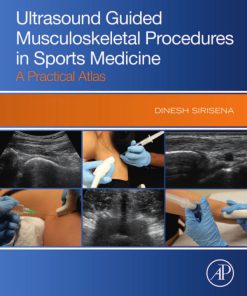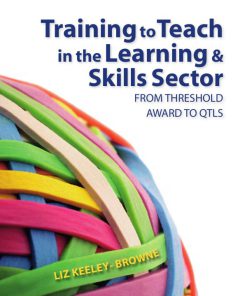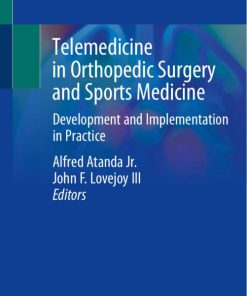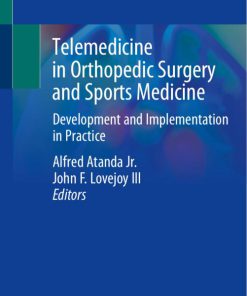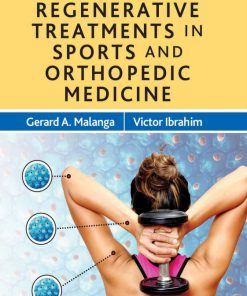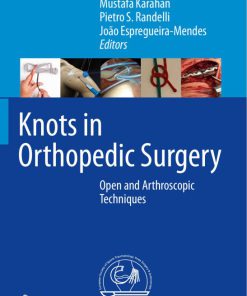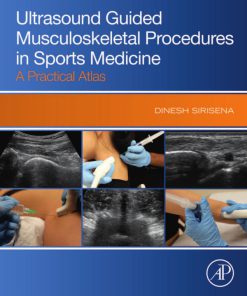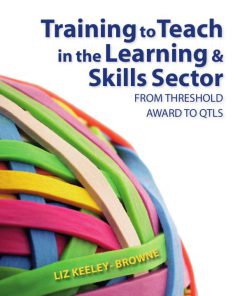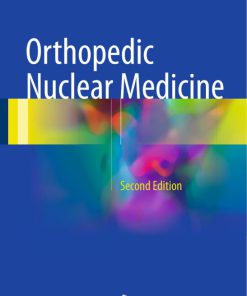Mustaf Motor Skills Training in Orthopedic Sports Medicine 1st Edition by Mustafa karahan, Joao Espregueira Mendes, Kaya Akan ISBN 9783662532294 3662532298
$50.00 Original price was: $50.00.$25.00Current price is: $25.00.
Authors:Karahan, João Espregueira-Mendes , Series:Surgery [64] , Tags:Medical › Orthopedics Medical / Clinical Medicine Medical / Orthopedics Medical / Sports Medicine , Author sort:Karahan, João Espregueira-Mendes , Languages:Languages:eng , Published:Published:Nov 2016 , Publisher:Springer , Comments:
Mustaf Motor Skills Training in Orthopedic Sports Medicine 1st Edition by Mustafa karahan, Joao Espregueira Mendes, Kaya Akan – Ebook PDF Instant Download/Delivery. 9783662532294 ,3662532298
Full download Mustaf Motor Skills Training in Orthopedic Sports Medicine 1st Edition after payment
Product details:
ISBN 10: 3662532298
ISBN 13: 9783662532294
Author: Mustafa karahan, Joao Espregueira Mendes, Kaya Akan
Mustaf Motor Skills Training in Orthopedic Sports Medicine 1st Edition Table of contents:
1: Fundamentals of Being a Sport Surgeon
1.1 Introduction
1.2 Sports Medicine Surgeon Requirements
1.3 Role of Sports Orthopedic Surgeons in Medical Teams
References
2: Motor Learning Principles for Arthroscopic Motor Skill Teaching
2.1 Introduction
2.2 Motor Skill
2.3 Movement Preparation
2.3.1 Response Preparation
2.3.2 Attention
2.3.3 Arousal
2.4 Motor Control
2.4.1 Neural Mechanisms
2.4.2 Vision
2.4.3 Proprioception
2.5 Motor Learning
2.6 Learning Stages
2.6.1 Cognitive Stage
2.6.2 Associative Stage
2.6.3 Autonomous Stage
2.7 Principles of a Learning Environment
2.7.1 Task Analysis
2.7.2 Course Program Designing Principles
2.7.3 The Environment
2.7.4 Adult Learner
2.7.5 Learning Styles
Reference
3: How to Teach Concepts of Surgical Skills and Strategy of Designing a Programme
3.1 Introduction to Importance of Surgical Skills Training
3.2 Standardization of Training Centres
3.3 Design of a Training Programme
3.3.1 Knee
3.3.2 Shoulder
3.3.3 Ankle
3.3.4 Setup and Instrumentation
3.3.5 Wrist
3.3.6 Elbow
3.4 Comparison Between Different Natures of Training Programmes
3.5 Mentorship of Arthroscopic Surgery
Recommended Reading
4: Setting Up a Curriculum
4.1 Introduction
4.2 What Is a Curriculum and Why Do You Need One?
4.2.1 What Is a Curriculum?
4.2.2 Why Is a Curriculum Necessary?
4.3 Understanding Fundamental Concepts
4.3.1 Curriculum
4.3.2 Consensus
4.3.3 Collaboration
4.3.4 Purpose
4.3.5 Understanding the Specialty
4.4 Developing a Curriculum Template
4.5 Designing Key Curriculum Elements
4.5.1 Selecting Syllabus Models
4.5.2 Identifying Assessments
4.5.3 Specifying Stages and Transitions
4.5.4 Training Trainers
4.5.5 Accrediting Training Centres
4.6 Reality Testing
4.6.1 Realistic
4.6.2 Readable
4.6.3 Reviewable
4.7 Mapping and Blueprinting
4.7.1 Exams and Assessments
4.7.2 External Accreditation
4.7.3 Other Curricula
4.8 Common Problems and Obstacles
4.8.1 Working with the Wrong People
4.8.2 Borrowing
4.8.3 Lack of Stamina
4.8.4 Inadequate Professional Support
4.8.5 Writing by Committee
4.8.6 Thinking Inside the Box
4.9 Implementation and Innovation
4.9.1 Structures
4.9.2 Systems
4.9.3 Tasks
4.9.4 People
4.9.5 Managing Transition
4.10 Celebrating Your Success
4.10.1 Publishing
4.10.2 Parties
References
5: Defining Essential Skills
5.1 Introduction
5.2 What Skills Need to Be Trained?
5.3 Translating Skills in Measurable Learning Objectives
5.3.1 Skill-Based Behavior
5.3.2 Rule-Based Behavior
5.3.3 Knowledge-Based Behavior
5.3.4 Model of Learning Psychomotor Skills
5.3.4.1 Cognitive Stage
5.3.4.2 Associative Stage
5.3.4.3 Autonomic Stage
5.3.4.4 Metrics for Objective Monitoring and Assessing
5.4 What Competency Levels Are Required?
5.5 Discussion
References
6: Arthroscopic Skills Training Modalities
6.1 Introduction: How We Learn Motor Skills
6.2 Basic Trainers
6.3 Basic Dry Anatomic Models
6.4 Advanced Dry Anatomic Models
6.5 Animal Models
6.6 Human Cadaveric Model
References
7: Simulators in Surgical Skills Training
7.1 Introduction
7.2 Physical Simulators with Sensors
7.3 Virtual Reality Simulators
7.4 Discussion and Future Perspective
References
8: Aspects of a Course Design
8.1 Introduction
8.2 Beginning at the End!
8.2.1 Using SMART Objectives
8.2.2 KISS
8.2.3 First Things First
8.2.4 The Devil Is in the Detail
8.2.4.1 Providing a Safe Space
8.2.4.2 Course Cycle
8.2.4.3 Chairperson
8.2.4.4 Course Organiser
8.2.4.5 Educational Advisor
8.2.4.6 Representative of Target Audience
8.2.4.7 Administrator
8.2.4.8 AV and IT Co-ordinator
8.2.4.9 Treasurer
8.2.4.10 Finances
References
9: Establishing Validation Methods: Measuring Progress (Measuring Teaching Effectiveness) – Globa
9.1 Introduction
9.2 Global Rating Scales
References
10: Certification of Surgical Skills
10.1 Introduction
10.2 Scope of Practice
10.3 Professional Role
10.4 Certification
10.5 Education
10.6 Examination
10.7 Decision-Making
Conclusion
People also search for Mustaf Motor Skills Training in Orthopedic Sports Medicine 1st Edition:
orthopedic injuries examples
orthopaedic injuries
orthopedic injuries list
orthopedic injuries meaning
You may also like…
eBook PDF
Orthopedic Nuclear Medicine 2nd Edition by Abdelhamid Elgazzar ISBN 9783319561677 3319561677

